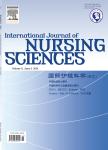Improve nursing in evidence-based practice:How Chinese nurses'read and comprehend scientific literature
护士阅读和理解科学文献的现况及影响因素的调查作者机构:School of NursingFujian Medical UniversityFuzhouChina Division of Behavioural ScienceSchool of Public HealthThe University of Hong KongHong KongChina Department of NeurosurgerySecond Affiliated Hospital of Harbin Medical UniversityHarbinChina Department of NursingHarbin Medical University Cancer HospitalHarbinChina Department of NursingTraditional Chinese Medicine Hospital of Hainan ProvinceHaikouHainanChina Nursing Psychology Research CenterXiangya School of NursingCentral South UniversityChangshaChina
出 版 物:《International Journal of Nursing Sciences》 (国际护理科学(英文))
年 卷 期:2017年第4卷第3期
页 面:296-302页
学科分类:1011[医学-护理学(可授医学、理学学位)] 10[医学]
基 金:Central South University CSU (2015036)
主 题:China Evidence-based nursing Nurses Questionnaires
摘 要:Objectives:To examine Chinese nurses practice of reading and understanding scientific literature and elucidate the motivating and deterring ***:This is a cross-sectional study conducted between March and June 2015.A random sample of 853 full-time registered nurses from three tertiary and two secondary hospitals in China filled out a set of self-administered questionnaires,including literature habit questionnaire(41 items),the situational motivation scale and the socio-demographic and professional characteristics questionnaire(15 items).Results:Significant majority(89.2%)of the respondents reported perception of barriers to keeping up to date with *** language barrier was the most prominent,followed by poor presentation and readability of *** simpler language when writing articles,improving ones foreign language proficiency and getting education or training on nursing research were raised as the top ***,reading and understanding literature was significantly associated with the nurses educational background,motivation,genders and work ***:The survey of the current status of literature education among Chinese nurses suggests that providing protected time,training for critical thinking,and incentive mechanisms will help improve nurses engagement in literature and create a culture of academic inquiry.



